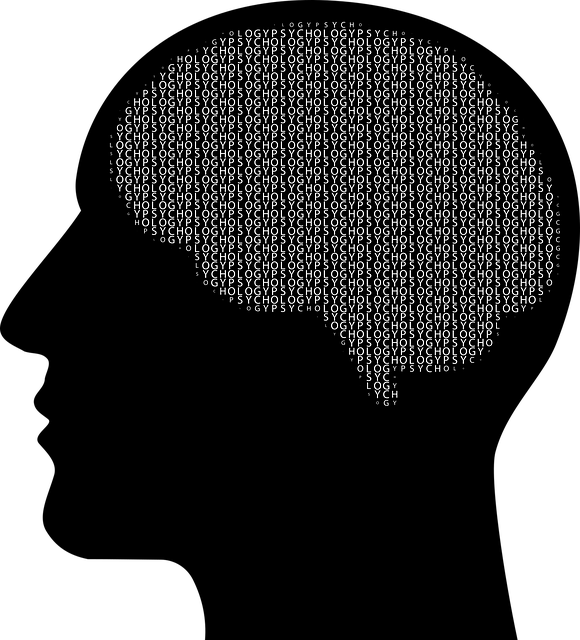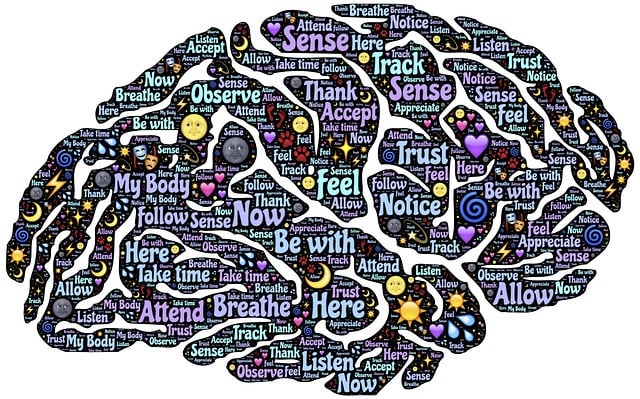Understanding mental health data involves diverse sources like electronic health records, surveys, interviews, and observational studies. In Denver, the growing interest in Functional Neurological Disorder (FND) therapy highlights a push for specialized care. Data from these sources offers valuable insights into prevalence, symptoms, and treatment outcomes of various mental health conditions. Effective preprocessing, including demographic normalization, encoding categorical variables, and scaling numerical data, is crucial for reliable and valid analysis. Advanced analytics tools like algorithms and machine learning are transforming patient care by revealing hidden patterns and enhancing diagnoses, personalized treatment plans, and improved outcomes. Analyzing DFND therapy sessions requires balancing clinical interpretation with actionable steps, focusing on symptom changes related to FND, anxiety, and emotional regulation over time. The DFND approach stands out through comprehensive assessment and personalized treatment plans, integrating compassion cultivation practices to prevent burnout and foster supportive environments.
Mental health data analysis is a burgeoning field, crucial for understanding and treating conditions like functional neurological disorders (FNDs). This article delves into the intricacies of mental health data collection from various sources, including patient records and surveys. We explore preprocessing techniques to ensure data quality, and discuss advanced analytics methods that uncover hidden patterns.
Through examining real-world examples like Denver Functional Neurological Disorder Therapy, we highlight the clinical interpretation of results and its translation into actionable steps for improved patient outcomes.
- Understanding Mental Health Data: Collection and Sources
- Preprocessing and Cleaning Techniques for Accurate Analysis
- Advanced Analytics: Uncovering Patterns and Insights
- Interpreting Results: Clinical Significance and Actionable Steps
- Denver Functional Neurological Disorder Therapy: A Case Study Approach
Understanding Mental Health Data: Collection and Sources

Understanding Mental Health Data begins with recognizing the diverse sources and methods of collection. This includes electronic health records, surveys, interviews, and observational studies conducted by professionals in various settings such as hospitals, clinics, schools, and community centers. In Denver, for instance, functional neurological disorder therapy has seen increased interest, reflecting a broader push for specialized mental health care. The data collected from these sources offers valuable insights into the prevalence, symptoms, and treatment outcomes associated with different mental health conditions.
Public Awareness Campaigns Development and Risk Management Planning for Mental Health Professionals play crucial roles in ensuring that the data is accurately gathered and interpreted. Burnout Prevention is another critical aspect to consider, as it influences both the quality of data collected and the consistency of interpretation. By addressing these aspects, professionals can enhance the reliability and validity of mental health data analysis, ultimately leading to more effective interventions and policies aimed at improving individual and community well-being.
Preprocessing and Cleaning Techniques for Accurate Analysis

Before diving into mental health data analysis, it’s crucial to preprocess and clean the data to ensure accurate insights. This initial step involves several techniques designed to remove noise, handle missing values, and transform raw data into a usable format. For instance, in the context of Denver functional neurological disorder therapy, preprocessing might include normalizing patient demographics, encoding categorical variables, and scaling numerical data to a common range. These methods help in accurately comparing different subsets of patients and identifying patterns that could be overlooked otherwise.
Furthermore, considering the relevance of burnout prevention strategies for healthcare providers, mood management, and coping skills development, effective preprocessing can highlight correlations between these factors. By meticulously cleaning and preparing the data, researchers and therapists can gain a deeper understanding of patient journeys, enabling them to tailor treatments more effectively. This not only enhances therapeutic outcomes but also contributes to broader knowledge in mental health care, particularly when employing advanced statistical methods for interpretation.
Advanced Analytics: Uncovering Patterns and Insights

In the realm of mental health data analysis, advanced analytics tools play a pivotal role in uncovering hidden patterns and insights that can significantly impact patient care. By leveraging sophisticated algorithms and machine learning techniques, professionals can gain deeper understanding into various conditions, such as Denver Functional Neurological Disorder Therapy. This enables more precise diagnoses, personalized treatment plans, and enhanced outcomes for individuals seeking therapy. Advanced analytics also facilitates the identification of risk factors and triggers associated with different mental health disorders, which is crucial in developing effective prevention strategies.
Moreover, these analytical methods can contribute to the design and evaluation of Mental Health Education Programs. By analyzing trends and correlations within large datasets, researchers can craft evidence-based programs that promote emotional healing processes and encourage positive thinking. This data-driven approach ensures interventions are tailored to address specific needs, maximizing their impact on mental well-being. It’s a testament to how advanced analytics is revolutionizing not only treatment but also the broader landscape of mental health support.
Interpreting Results: Clinical Significance and Actionable Steps

When analyzing mental health data from Denver Functional Neurological Disorder Therapy sessions, it’s crucial to consider both clinical significance and actionable steps. Interpreting results means understanding how individuals’ progress aligns with established psychological frameworks and research. This involves evaluating changes in symptoms related to conditions like functional neurological disorders (FND), anxiety, and emotional regulation over time. For instance, a significant reduction in anxiety-related symptoms or improved self-awareness exercises can indicate therapeutic effectiveness.
The data should guide practical actions for healthcare providers. It might suggest adjustments in treatment plans, such as incorporating additional strategies for emotional regulation or enhancing specific aspects of therapy to target lingering issues. By combining clinical insights with actionable steps, therapists can tailor interventions more effectively, ensuring continued progress and ultimately improving patient outcomes, including the relief of anxiety symptoms.
Denver Functional Neurological Disorder Therapy: A Case Study Approach

The Denver Functional Neurological Disorder (DFND) Therapy approach offers a unique and effective case study in mental health data analysis. This therapeutic model leverages detailed assessments and personalized treatment plans to target specific aspects of emotional well-being promotion techniques. By studying individual patient journeys, therapists gain insights into what interventions work best for various neurologic conditions, enhancing their ability to interpret and apply data effectively.
Through DFND Therapy, compassion cultivation practices are integrated into the core of treatment. This not only helps in burnout prevention but also fosters a supportive environment that encourages exploration and growth. The case studies generated from this approach provide rich data on patient progress, highlighting successful strategies and areas needing further research. These insights contribute to a more nuanced understanding of mental health conditions, ultimately refining therapy practices for better outcomes.
Mental health data analysis, enriched by advanced analytics techniques, offers profound insights into conditions like functional neurological disorders (FNDs), as seen in our case study of Denver Functional Neurological Disorder Therapy. By understanding and interpreting this data effectively, healthcare professionals can implement more targeted and successful treatment strategies. Preprocessing and cleaning techniques ensure accuracy, enabling the identification of patterns that lead to actionable steps for improved patient outcomes. This holistic approach, combining rigorous analysis with clinical expertise, is crucial in navigating the complex landscape of mental health care.














